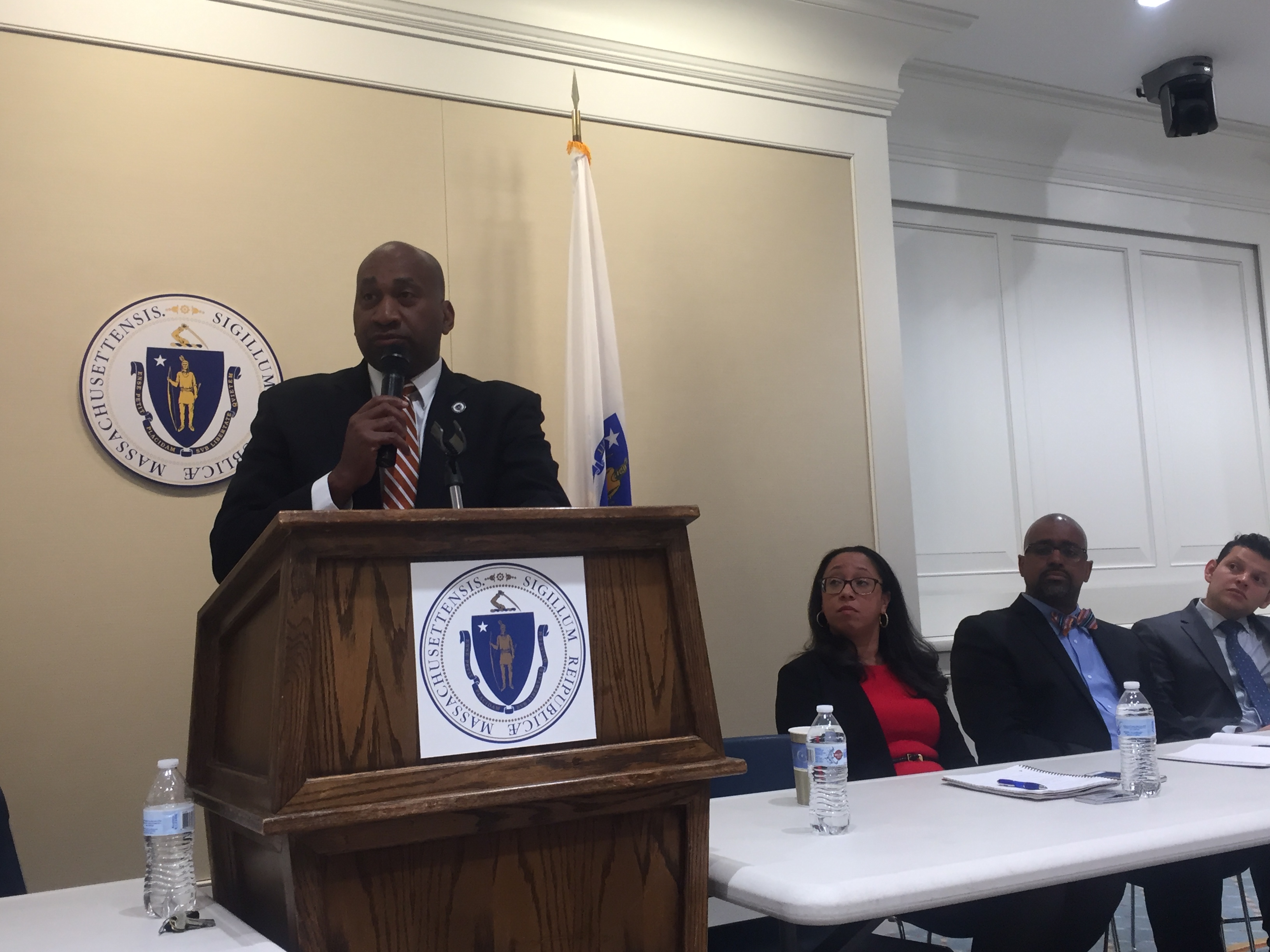Activists and members of the legislature are looking to setup a licensure process to hold cops accountable in Massachusetts if they are found guilty of misconduct.
The Lawyers’ Committee for Civil Rights and Economic Justice and the ACLU of Massachusetts hosted a panel on the topic on Monday, May 21, and cited reasons a Peace Officer Standards and Training Commission (POST) should be established here in Massachusetts.
Panelists argued in a favor of a decertification process for bad actors and cited several instances where police abused their power in the Bay State.
Massachusetts is just one of five states in the country that does not have a POST system or equivalent certification process for its police.
“We’ve done some changes obviously with criminal justice,” said panelist and state representative Russell E. Holmes. “But we must strike a balance between the way the communities see themselves being policed and the way police see themselves as they police our communities.”
Holmes spoke briefly of a case involving his sister, where she was beaten by a transit police cop, who was later convicted of assault after she had falsified a police report about the incident.
The cop in that incident was asked not to apply for work with law enforcement as part of her probation.
“We shouldn’t have to rely on a court telling someone that during the term of probation, which is probably a year, that you cannot seek employment with law enforcement,” ACLU of Massachusetts Racial Justice Program Director, Rahsaan Hall, said in response of this case.
“It’s really astounding when you think about it,” said St. Louis University School of Law professor Roger Goldman. “We ought to treat the law enforcement profession the same way we do at least 150 other occupations/professions in the state.”
Goldman has spent decades advocating for a POST system in every state. He said the absence of a certification process is allowing officers to be rehired elsewhere after cases of misconduct.
“The key to get this law passed in many, many states unfortunately is repeated misconduct,” Goldman said .
Having a federal mandated national database of said officers, Goldman argues, could protect the public from repeated acts of misconduct, which typically include instances of excessive force, perjury and most commonly sexual assault.
Lawyers’ Committee for Civil Rights and Economic Justice staff attorney, Sophia Hall, said it is an issue that affects communities of color and people living with disabilities.
“If you’re a police misconduct lawyer what you learn is that very regularly when you go through the discovery process … what you regularly will find out is that a police officer who has been accused of misconduct, it’s usually not the first time,” Hall said.
She spoke of a case that her organization is working on involving the shooting death of a black man in the South End neighborhood of Boston, where he was shot by police when his mom called for an ambulance.
“It’s not this one travesty but it’s the fact that these stories keep being told time and time again,” Hall said.
Chelsea Police Chief Brian Kyes, head of the Massachusetts Major City Chiefs of Police, said most police chiefs share his sentiment that a POST system is necessary.
Goldman said so far the Department of Defense and National Park Service have expressed interest in a certification system and argued that the national practitioner data bank is a model that law enforcement agencies should follow.
A bill to establish a POST commission may be introduced to members of the legislature next session.
“If we had it for doctors and nurses and physical therapists, then why not for cops?,” Goldman asked. “If we do it for docs, why not for cops?”

Leave a Reply
You must be logged in to post a comment.